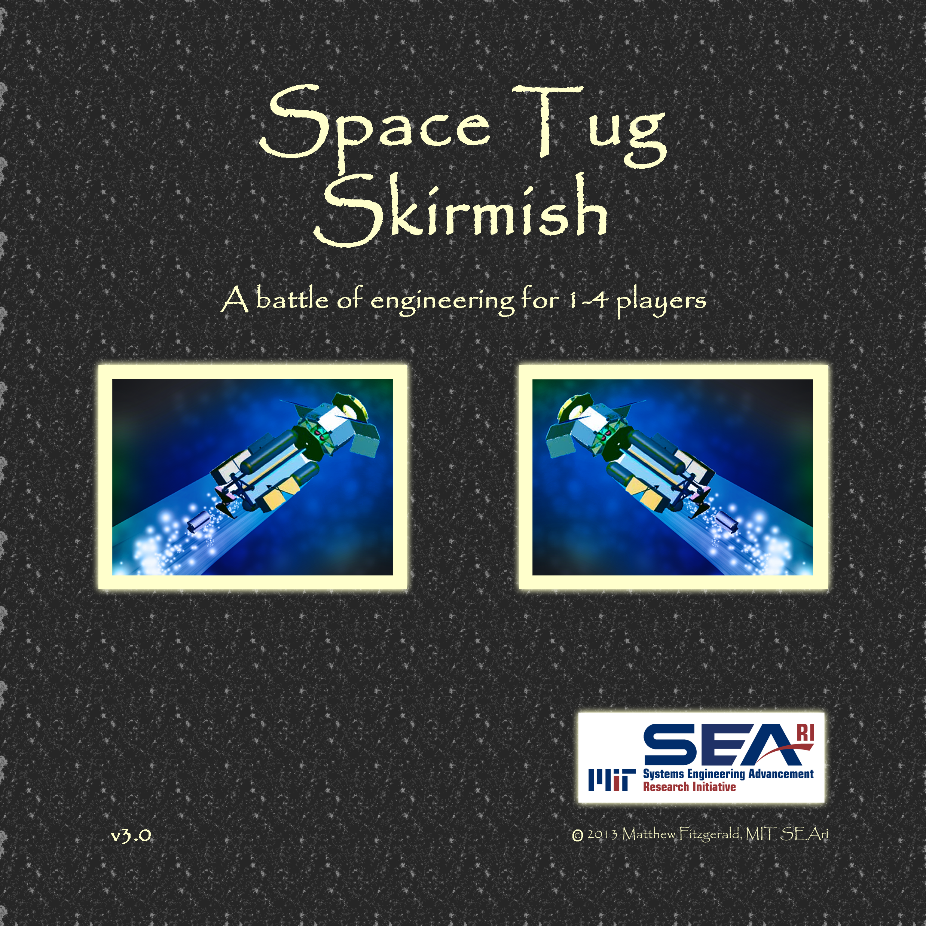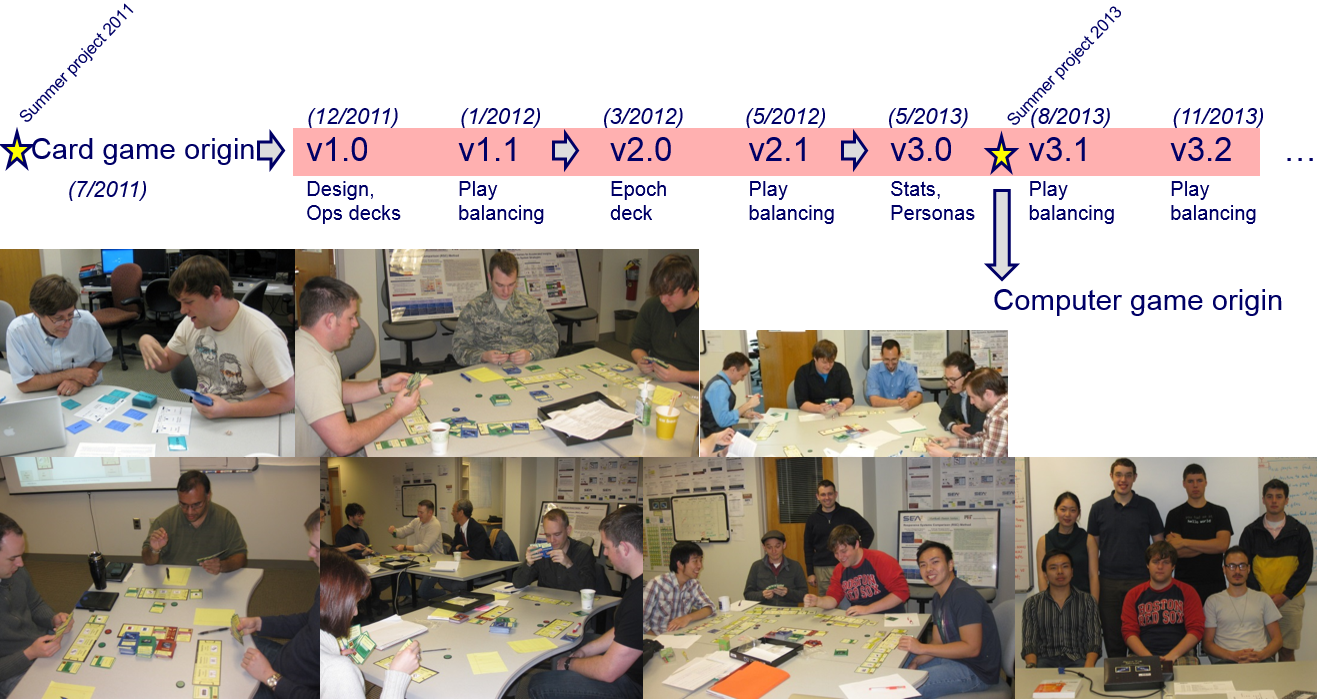
Our Location at MIT
E17-361, 40 Ames St
Kendall Square
Cambridge, MA
seari@mit.edu
617-324-0473




Space Tug Skirmish (STS) was originally conceived in the summer of 2011 as a potential solution to the challenge of rapidly teaching SEAri research material using the medium of games. Over the years, it had become readily apparent that the lab's graduate students typically required a year of immersion before existing SEAri research methods and terminology began to feel tangible, delaying their ability to contribute effectively with individual research. Given that SEAri's research was also placed at the interface of engineering and upper-management decision making, this slow learning curve was also problematic in demonstrating contributions to potential high-level adopters, particular those with less technical backgrounds. Educational games seemed to offer a great deal of promise as both an effective way of conveying complex ideas and relationships in a short period of time and also a fun distillation of the work that could be used to spark interest. This led to the question: can we use a game to teach a completely unsophisticated player (no social/technical/systems experience) a basic understanding of system design, particularly the benefits of -ilities given future uncertainty? This question became the catalyst for the central idea behind STS, a card game designed to evoke the tension between designing a system and operating it, all while other players and random uncertainties try to interfere with your goals.

The basic gameplay of STS revolves around the players, as entrants into the emerging market of rental space tug services, competing to be the first to make one hundred million dollars. To do this, they control their tug as they alternate between two phases of play, Design and Ops. Each phase has its own set of cards which are only usable within that phase. The two phases have different high level goals: Design phase revolves around playing cards that improve the tug, increasing income or providing useful traits and abilities, while Ops phase is the time in which money can be made and attacks can be directed at opponents. Given limited starting funds, each player will typically change phases multiple times over the course of the game, gradually making money and spending it to further improve their tug. Meanwhile, all players are exposed to uncertainty in the form of the Epoch deck, which reveals new contexts, contracts, and disturbances every round.